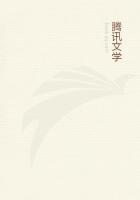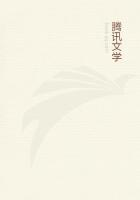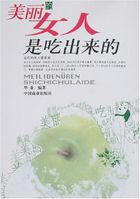On the other hand, he cannot be justly charged with a desire to frame language on artificial principles. Philosophers have sometimes dreamed of a technical or scientific language, in words which should have fixed meanings, and stand in the same relation to one another as the substances which they denote. But there is no more trace of this in Plato than there is of a language corresponding to the ideas; nor, indeed, could the want of such a language be felt until the sciences were far more developed. Those who would extend the use of technical phraseology beyond the limits of science or of custom, seem to forget that freedom and suggestiveness and the play of association are essential characteristics of language. The great master has shown how he regarded pedantic distinctions of words or attempts to confine their meaning in the satire on Prodicus in the Protagoras.
(5) In addition to these anticipations of the general principles of philology, we may note also a few curious observations on words and sounds.
'The Eretrians say sklerotes for skleroter;' 'the Thessalians call Apollo Amlos;' 'The Phrygians have the words pur, udor, kunes slightly changed;'
'there is an old Homeric word emesato, meaning "he contrived";' 'our forefathers, and especially the women, who are most conservative of the ancient language, loved the letters iota and delta; but now iota is changed into eta and epsilon, and delta into zeta; this is supposed to increase the grandeur of the sound.' Plato was very willing to use inductive arguments, so far as they were within his reach; but he would also have assigned a large influence to chance. Nor indeed is induction applicable to philology in the same degree as to most of the physical sciences. For after we have pushed our researches to the furthest point, in language as in all the other creations of the human mind, there will always remain an element of exception or accident or free-will, which cannot be eliminated.
The question, 'whether falsehood is impossible,' which Socrates characteristically sets aside as too subtle for an old man (compare Euthyd.), could only have arisen in an age of imperfect consciousness, which had not yet learned to distinguish words from things. Socrates replies in effect that words have an independent existence; thus anticipating the solution of the mediaeval controversy of Nominalism and Realism. He is aware too that languages exist in various degrees of perfection, and that the analysis of them can only be carried to a certain point. 'If we could always, or almost always, use likenesses, which are the appropriate expressions, that would be the most perfect state of language.' These words suggest a question of deeper interest than the origin of language; viz. what is the ideal of language, how far by any correction of their usages existing languages might become clearer and more expressive than they are, more poetical, and also more logical; or whether they are now finally fixed and have received their last impress from time and authority.
On the whole, the Cratylus seems to contain deeper truths about language than any other ancient writing. But feeling the uncertain ground upon which he is walking, and partly in order to preserve the character of Socrates, Plato envelopes the whole subject in a robe of fancy, and allows his principles to drop out as if by accident.
II. What is the result of recent speculations about the origin and nature of language? Like other modern metaphysical enquiries, they end at last in a statement of facts. But, in order to state or understand the facts, a metaphysical insight seems to be required. There are more things in language than the human mind easily conceives. And many fallacies have to be dispelled, as well as observations made. The true spirit of philosophy or metaphysics can alone charm away metaphysical illusions, which are always reappearing, formerly in the fancies of neoplatonist writers, now in the disguise of experience and common sense. An analogy, a figure of speech, an intelligible theory, a superficial observation of the individual, have often been mistaken for a true account of the origin of language.
Speaking is one of the simplest natural operations, and also the most complex. Nothing would seem to be easier or more trivial than a few words uttered by a child in any language. Yet into the formation of those words have entered causes which the human mind is not capable of calculating.
They are a drop or two of the great stream or ocean of speech which has been flowing in all ages. They have been transmitted from one language to another; like the child himself, they go back to the beginnings of the human race. How they originated, who can tell? Nevertheless we can imagine a stage of human society in which the circle of men's minds was narrower and their sympathies and instincts stronger; in which their organs of speech were more flexible, and the sense of hearing finer and more discerning; in which they lived more in company, and after the manner of children were more given to express their feelings; in which 'they moved all together,' like a herd of wild animals, 'when they moved at all.'














